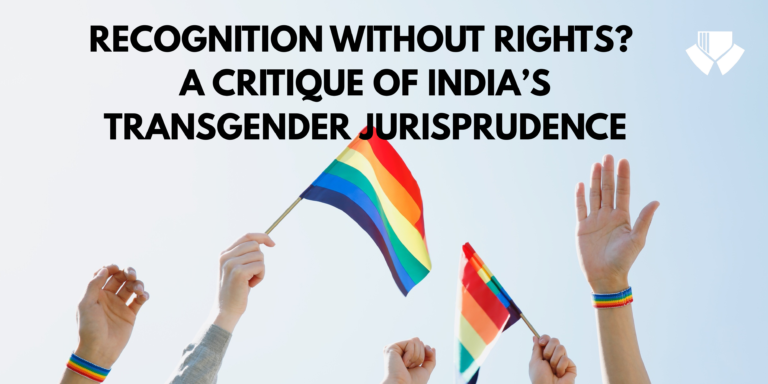This Long Article has been written by Anam Mackay. Anam is a PhD scholar at Department of Legal Studies, Central University of Kashmir.
ABSTRACT
NALSA and Transgender Persons (Protection of Rights) Act, 2019 have been path-breaking in Indian legal landscape for transgender rights. Almost a decade after the judgement and Act, this paper seeks to highlight the legal changes and legal gaps in transgender rights realisation. The paper uses secondary qualitative methodology for ascertaining the impact of NALSA and Transgender Act of 2019 in recent judicial pronouncements under the broader international and national instruments like UDHR, Yogyakarta Principles and Constitution of India. The paper highlights the lack of legal recognition of civil rights of marriage and adoption for transgender persons and limited access to education and employment despite statutory recognition of the same. The doctrinal analysis concluded that despite international and national framework of rights, transgender persons lack access to rights available to cis-gender persons. It is suggested that courts and legislature ought to work towards fulfilling the commitments under international and national frameworks to provide to the transgender community the basic rights to life by extending civil rights like education, employment, marriage and adoption.
Keywords- Transgender rights, NALSA judgment, Human rights law, Gender justice, Transgender Persons (Protection of Rights) Act, 2019






